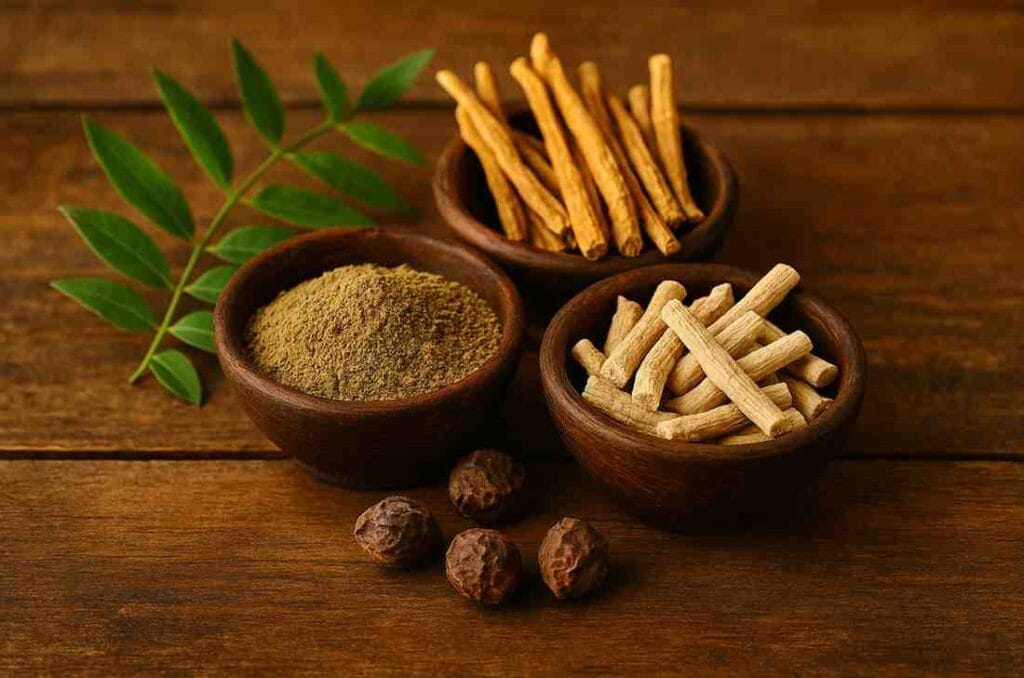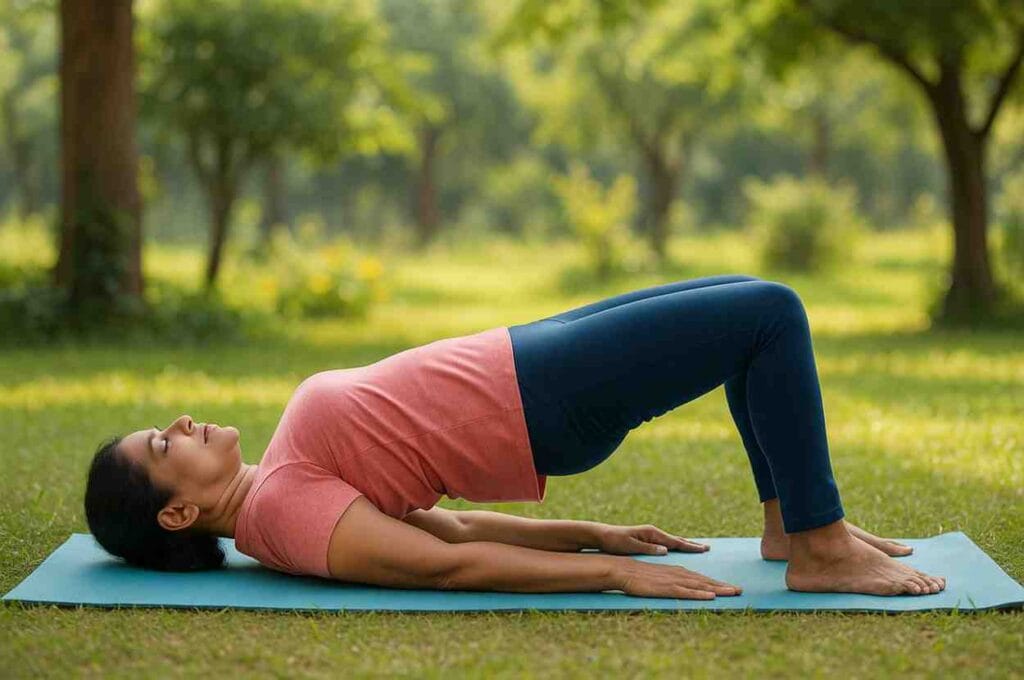Menopause is a normal process in the life of every woman. However, to a number of people, it is also accompanied by changes that may confuse them or even overwhelm them. They experience hot flashes, mood swings, sleeping difficulty, and bone health. The positive news? You can cope with such changes in a healthy natural manner by having the proper combination of science-based wellness advice with the traditional Indian wellness.
What is Menopause?
Menopause occurs when you have not had periods consecutively in 12 months. This normally comes between the ages of 45 and 55, though it may be earlier or later. It is the period of infertility occasioned by natural decline in the hormones, estrogen and progesterone.
Most women before the onset of menopause experience a pre-menopause stage, where women are affected but the periods are not totally over. Being aware of these phases may enable you to be better prepared and deal with the symptoms.
Common Symptoms
While every woman’s experience is unique, some signs are common:
- Hot flashes and night sweats
- Mood swings, irritability, or anxiety
- Irregular or missed periods
- Weight gain around the belly
- Dry skin and hair thinning
- Hard sleeping
- Joint stiffness
- Vaginal dryness or discomfort during intimacy
Why Natural Management Matters
Other women undergo hormone replacement therapy (HRT) which is not suitable to all women. Natural options are able to:
• Decrease symptoms without robust side effects of medication.
• Improves long term health.
• Fit conveniently in the day-to-day lives.
• Bring morden science and India heritage of wellbeing together.
Science-Backed Natural Tips
1. Balanced Nutrition
The consumption of good food is one of the most powerful symptom management.
• Calcium & Vitamin D: Enhance the strength of bones. Well sources are dairy, ragi, and low oxalate leafy vegetables such as kale, as well as, safe exposure to sunlight.
• Protein: aids in preserving the metabolism and maintaining muscle health. Get lentils, eggs and paneer, and fish.
• Omega-3 fats: Lowers inflammation and can potentially improve mood in certain women although results are mixed. The sources are flaxseeds, walnuts and fatty fish.
• Fiber: Helps to cleanse your body/improve digestion and is great for your heart. The sources are whole grains, fruits, and vegetables.
2. Regular Physical Exercise
• Strength training: Maintains bone strength and controls changes in weight.
• Yoga: Advanced the flexibility, decrease stress and can help in general well-being at the time of menopause.
• Walking or swimming: Increases mood and heart health.
Tip: 30 minutes a day of some combination of strength training, stretching and aerobic exercise.
3. Sleep Hygiene
Good habits assist with sleep during menopause:
- Maintain a fixed bedtime every night.
- Quit caffeine in the evening.
- Make sure that your bedroom is cool and silent.
- Before bedtime, attempt some deep breathing (diaphragmatic breathing) or meditation.
4. Stress Management

- Meditation & Mindfulness: Spending 10 minutes every day may relax the mind.
- Pranayama (Breathing exercises): Calm down and relax mind.
- Spending time in nature: Naturally improve mental well-being.
Indian Wellness Traditions for Menopause
Ayurvedic Herbs

- Shatavari: A traditional herb in Ayurveda, which has been used to assist in women health.
- Ashwagandha: Potentially effective to relieve stress and sleep better.
- Triphala: Digestive and natural detoxifier.
They are old herbs and we know little about them in the modern science so it is advisable to consult a qualified practitioner before using them.
Traditional Diet Practices
- Consume ghee in moderation as a healthy fat.
- Add turmeric because of its anti-inflammatory compounds.
- Try to eat fresh, seasonal fruits and vegetables in accordance to the local harvest.
Yoga for Menopause

- Baddha Konasana (Butterfly pose) helps simplifies the tightness of the pelvis.
- Setu Bandhasana (Bridge pose) gives back strength and relaxes the mind.
- Shavasana (Corpse pose) is for deep relaxation.
When to Seek Medical Help
Mild-to-moderate symptoms may be treated initially with natural approaches. Consult the doctor when you experience:
- Severe or excessive bleeding
- Intense depression or anxiety
- Sudden weight loss or gain
- Chest pain or breathlessness
Lifestyle Checklist
| Habit | Benefit |
| Drink 2–3 litres of water daily | Reduces hot flashes, keeps skin hydrated |
| Quit smoking & limit alcohol | Protects heart and bones |
| Maintain social connections | Improves mood and healthy brain functions |
| Get regular health check-ups | Early detection of problems |
Final Thoughts
Menopause is not a disease, it is the stage of life. You can pass through it powerfully and with confidence through balancing nutrition, staying physically active, caring about feelings, and practicing traditional Indian wisdom. There is no standard path of a woman, so it is best to listen to your own body and treat it well as necessary and seek help when necessary.
Frequently Asked Questions (FAQs)
Q1. What is the average age of menopause?
The average age of menopause between 45 and 55 years old, although this may occur earlier or later in life due to genetics, health, and lifestyle.
Q2. Can menopause be delayed naturally?
Delaying menopause is not guaranteed and eating a healthy diet, exercising and managing stress can help prolong good hormonal health.
Q3. Are Ayurvedic herbs safe for menopause symptoms?
Certain herbs such as Shatavari, Ashwagandha and Triphala can be beneficial but you should always check with your trusted practitioner before using them and in case you are already on medication.
Q4. What foods should I avoid during menopause?
You should limit processed food, sugary snacks, additional caffeine, and alcohol when you experience menopause as these can increase hot flash, mood swings, and weight gain.
Q5. How does yoga help during menopause?
Yoga may be beneficial as it increases flexibility, decreases stress, boosts mood and relieves hot flashes. The best poses or breathing exercises are gentle.
Q6. Do I still need contraception during perimenopause?
There is chance of get pregnant up to 12 months after your last period, so it is very important that you use contraception during perimenopause.
Q7. When should I see a doctor about menopause symptoms?
Heavy bleeding, intense depression, radical change of weight, and chest pain are some of the symptoms of which you should see a doctor immediately.